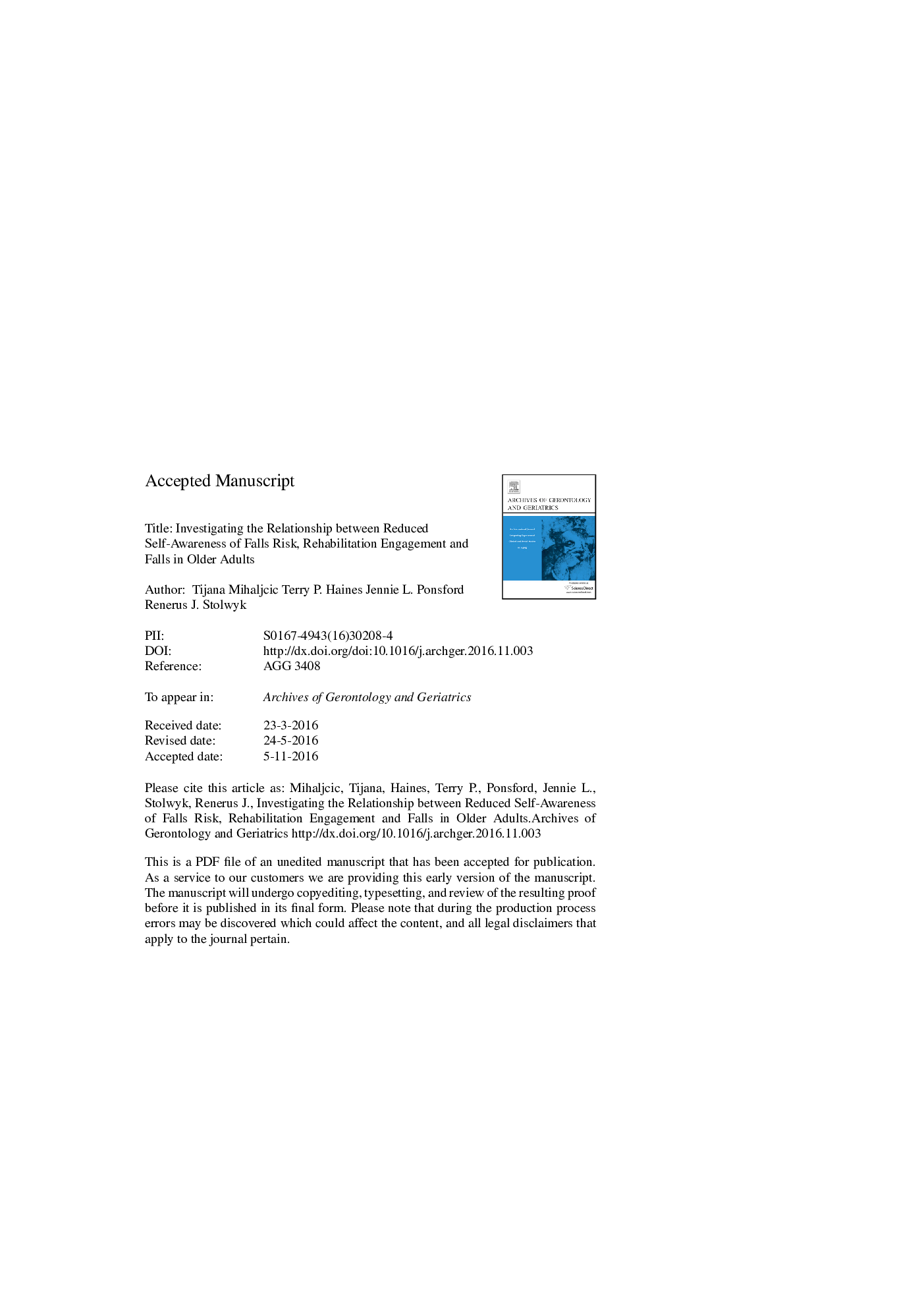| Article ID | Journal | Published Year | Pages | File Type |
|---|---|---|---|---|
| 5500826 | Archives of Gerontology and Geriatrics | 2017 | 32 Pages |
Abstract
The present study aimed to investigate whether self-awareness of falls risk is associated with rehabilitation engagement, motivation for rehabilitation, and number of falls after hospital discharge. The sample comprised 91 older adults (Mage = 77.97, SD = 8.04) undergoing inpatient rehabilitation. The Self-Awareness of Falls Risk Measure (SAFRM) was used to measure different aspects of self-awareness. The treating physiotherapist and occupational therapist rated the patient's engagement in rehabilitation and the patient reported his/her motivation for treatment. Falls information was collected from the patient and significant other once a month for three months following hospital discharge. Significant correlations were found between physiotherapist-rated engagement and intellectual (rs = â0.22, p <0.05) and anticipatory awareness (rs = â0.24, p <0.05). Occupational therapist-rated engagement and patient-reported motivation for rehabilitation was correlated with emergent awareness (rs = â0.38 and â0.31, p <0.05, respectively) and overall self-awareness (rs = â0.31 and â0.26, p <0.05, respectively). Regression analyses indicated that overall self-awareness provided a unique contribution to occupational therapist-rated engagement when controlling for age, gender, cognition and functional ability. Falls were reported by 29.9% of participants, however, self-awareness did not differ significantly between fallers and non-fallers. The findings suggest that self-awareness of falls risk is associated with rehabilitation engagement and motivation. Therefore, improving patient self-awareness of falls risk may increase engagement in therapy leading to better patient outcomes.
Keywords
Related Topics
Life Sciences
Biochemistry, Genetics and Molecular Biology
Ageing
Authors
Tijana Mihaljcic, Terry P. Haines, Jennie L. Ponsford, Renerus J. Stolwyk,
